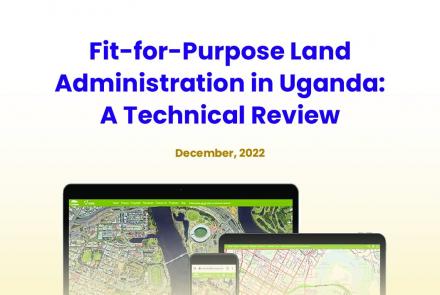Advocacy and Policy Influencing
The LANDnet team has a wealth of experience in advocacy and policy influencing and will use this knowledge to undertake advocacy on strategic matters. Central among this is the institution of the following advocacy innovations:
a) Public Information
Land administration is a function, which entails the mobilization of institutional mechanisms and personnel for juridical, regulatory, fiscal and cadastral components development. Land rights administration involves the process of determining, registering and availing information about ownership, value and use of land and its associated resources. LANDnet seeks to increase availability of public information on land in Uganda through the following innovations:
LANDwatch Uganda
LANDwatch is the media website of LANDnet that presents documentaries and news on land governance in Uganda. It contains dedicated topics to women and land, land and investment, policy development and implementation, and access to justice among others. LANDwatch will be run by a team of dedicated journalist who bring the rich discussions and perspectives on land governance in Uganda. LANDwatch will provide the alternative voice providing news and articles that we do not get published in the press.
The Uganda LANDobservatory.
The Uganda LANDobservatory will be uploaded as a mechanism to provide public information on land rights in Uganda. It hosts real time up-to date information on land acquisitions and investments. It seeks to provide open data for use by government, the private sector and the general public to guide policy development and public understanding of trends in the land sector.
b) Public Campaigns
Campaigns on critical issues in the land and natural resources sector, because of the political and cultural sensitivity around the emerging and contemporary land issues. Land is power and therefore ensuring that the rights and voices of the minority and majority of the population are heard requires constant and calculated strategies and approaches that are sustainable over the long term.
The Uganda LANDawareness week
The LANDawareness week is needed to create a platform for land rights and management debate. It should serve to interface all stakeholders and also create room for social interaction and accountability by government and civil society actors in the sector under the theme “Land: our wealth... our future!”
The LANDawareness week brings together representatives from government departments, parliament, the academia, civil society organizations (CSOs), the legal fraternity, the private sector, African Union, East African Community and the general public. Objectives of the LANDawareness week are to:
- Share and disseminate knowledge to the public on all land related plans, policies and laws in Uganda.
- Create awareness on the functions of the various land management institutions in Uganda.
- Create a platform for dialogue on land matters with the various stakeholders.
- Build stronger linkages between all land related institutions and the citizens of Uganda.
The LANDawareness week provides an opportunity for the citizenry and general public to gain access to spaces that they could not before claim. Working closely with Government in this manner creates opportunities for systemic and sructural change. It bridges the ever widening gap between the rights seeking public and those mandated to deliver and secure these rights. The LANDawareness Week opens new frontiers of engagement, safe spaces to speak and be heard, to agree on next steps in the presence of the populace and to create an atmosphere of continued collaboration and engagement in the quest to make land work for the people of Uganda.
The Uganda LANDforum
The Uganda LANDforum aims at creating a conducive environment for foreign and domestic investors to interact with government, civil society and the academia through dialogue in a bid to improve the investment climate and contribute to inclusive sustainable development and food security. The anticipated results are:
- An emerging understanding of inclusive business models and benefit-sharing arrangements that leave agricultural businesses profitable and communities better off.
- Reduced bottlenecks to the functioning of the land and agricultural investments and other land related sectors in Uganda.
- Increased participation and collaboration of stakeholders in the land and agricultural investment sector.
c) The Arts for Development – a human development approach to land governance.
Land is power yet the power of culture to subsume the supremacy of the law governing land cannot be overemphasized. Lying at the core of society is art - a means of bringing about social change. Art and design, drama, film and music can help people get to grips with their own lives and realities in more ways than any legal education and sensitization program can. Art can be an affective vehicle to engage the population regarding the importance of land to their socio-political and economic well being.
Through the Arts for Development LANDnet will facilitate the integration of the arts into social and economic development, establishing authentic relationships among individuals, communities, artists, and organizations working to create vibrant and sustainable approaches addressing land sector challenges.
LANDnet believes that education plays a central role in all effective development work. Creative, artistic, and cultural expression enhance the education process by empowering and inspiring a vision for collective action and systemic change within the land sector and other related sectors.
Art is often an open platform for freedom of speech, even in societies where that freedom is restricted. This makes art an effective tool for exposing highly political social issues in the land sector. LANDnet will achieve this by -
- Establishing a network for collaboration among members of the artistic and development communities in Uganda
- Establishing collaborative arrangements with training institutions to support, recognize and rewardinitiatives by young artists that utilize the arts in development projects, particularly those aimed at land governance and other land related sectors





